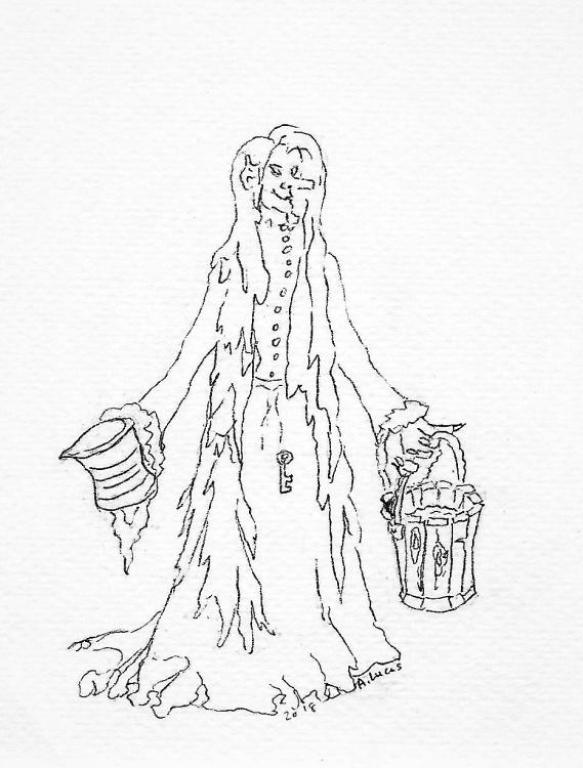
The Brownie and Glaistig of Tiree
By Marg Greenwood
 Sketch of a Glaistig
Sketch of a GlaistigImage provided by Marg Greenwood
To the west of Crossapol in Tiree there's a small freshwater loch called Loch an Eilein. In the loch there is an island (a crannog) where once stood a castle. Only an original dry stone dyke of this castle survives, but folklore tell us that its attic was the home of a Brownie who kept his name secret.
The Brownie's job was to keep cattle away from the crops at night. This he did without any clothes on. Once he was offered shoes and 'breeks' (trousers) but, being a typical Brownie who didn't like people taking pity on him, he refused the offer of clothes and stomped off.
He revealed his name in a chant (like Rumpelstiltskin); 'Shoes and breeks on Gunna/ And Gunna at the herding;/ But may Gunna enjoy neither shoes nor breeks,/ if he should herd the cattle any more.'
He was never seen again. (The Peat Fire Flame, A.A. MacGregor).
Glaistigs are the Brownies female counterpart. They were thin green-skinned women, with long grey hair. They often lived on dairy farms - they enjoyed yelling at the cattle, but loved milk, which they would demand from crofters. Like the Brownies, they expected respect and gratitude. Interestingly they were known to take care of 'persons of weak intellect.'
They also liked to spin. If you left your spinning wheel out on a Saturday night, and were very religious, you would be ashamed next morning as the Glaistig might have indulged herself spinning all night. Religious people would remove the band of the spinning wheel every Saturday evening to prevent any early Sunday morning meddling by the Glaistig!
This particular Glaistig of Tiree, with long yellow hair, lived in the attic of Island House, near the castle. People called her the Sea Gruagach; Gruagach means 'the hairy one.' She worked extra hard at housekeeping before visitors were expected. She was hardly ever seen by genteel folk, but servants must have seen or heard her more often, because she supervised them and gave them a 'doing' when they slackened off.